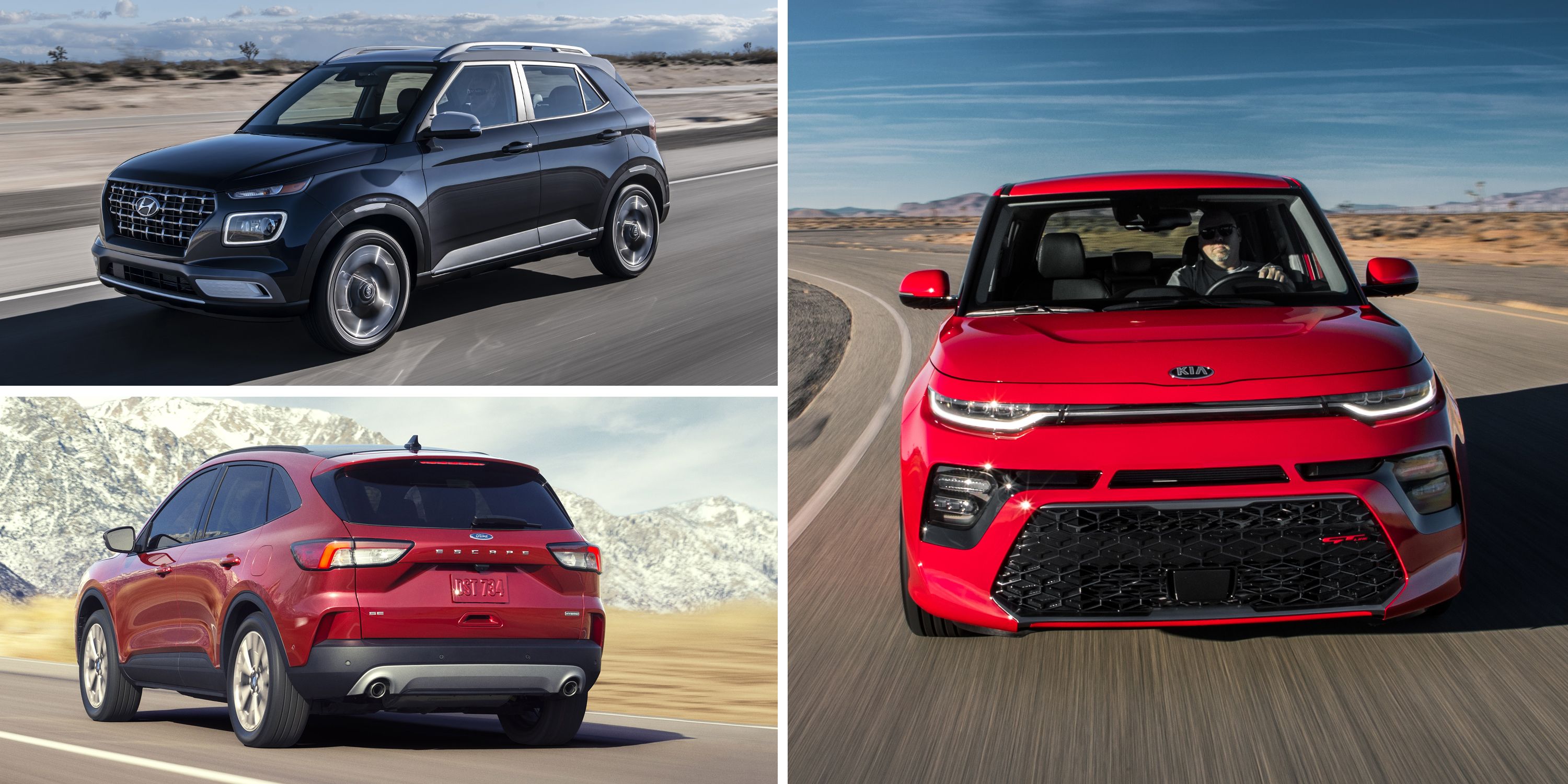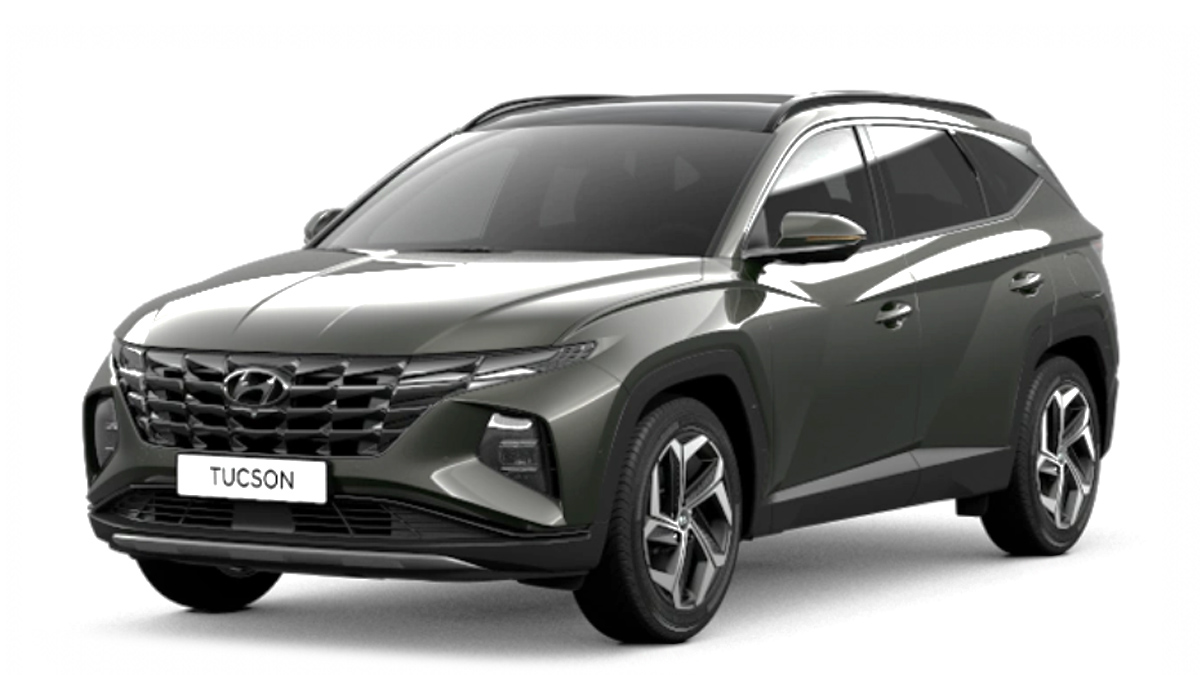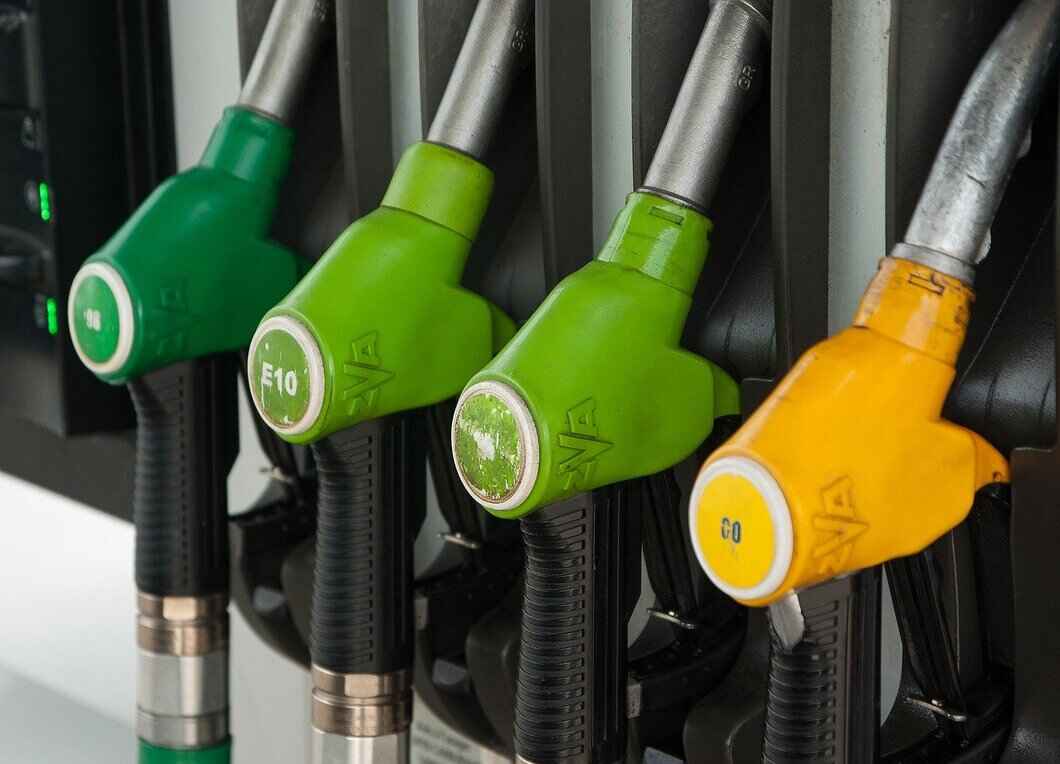
When it comes to SUV MPG comparison, understanding the factors that affect fuel economy and how different models stack up against each other is crucial for car enthusiasts and SUV drivers alike. This guide provides an in-depth look at the fuel efficiency of SUVs, from defining MPG to examining various models and their respective ratings.
We’ll start by defining MPG and discussing the factors that influence it. Next, we’ll explore popular SUVs on the market today along with their respective MPG ratings across small, mid-size, and large categories. We will also provide you with a step-by-step guide on calculating your own vehicle’s MPG rating.
Furthermore, this post offers valuable tips for improving your SUV’s fuel efficiency through regular maintenance checks and adopting better driving habits. We will also compare different types of fuel sources such as gasoline vs diesel engines and electric vs hybrid engines to help you make an informed decision when choosing your next ride.
Last but not least, we will present a cost comparison between these various types of fuel sources for a well-rounded perspective on SUV MPG comparisons.
Table of Contents:
- Overview of SUV MPG Comparison
- a. Definition of MPG
- b. Factors Affecting MPG
- c. Benefits of Knowing MPG Ratings
- Popular SUVs and Their MPG Ratings
- How to Calculate Your Own SUV’s MPG Rating
- Tips for Improving Your SUV’s Fuel Efficiency
- Pros and Cons of Different Types of Fuel Sources for SUVs
- Pros and Cons of Different Types of Fuel Sources for SUVs
- Cost Comparison Between Different Types of Fuel Sources for SUVs
- Common Questions About SUV MPG Comparison
- a. How accurate are EPA-estimated MPG ratings?
- b. Do diesel motors offer superior fuel efficiency when compared to gasoline engines?
- c. What is the difference between hybrid and electric SUVs regarding fuel efficiency?
- d. How does vehicle weight affect MPG?
- e. What are some ways I can improve my current SUV’s MPG?
- Common Questions About SUV MPG Comparison
- Frequently Asked Questions Suv Mpg Comparison
- Conclusion
1. Overview of SUV MPG Comparison

In today’s world, fuel efficiency is an essential factor to consider when purchasing a new vehicle, especially for those interested in new SUVs and prices. One way to determine the fuel efficiency of a vehicle is by looking at its miles per gallon (MPG) rating. In this section, we will discuss the concept of MPG, factors that affect it, and why knowing these ratings can be beneficial when considering a new SUV.
a. Definition of MPG
Miles per gallon (MPG) is a measurement used to express the fuel efficiency or consumption rate of vehicles such as cars and trucks. It indicates how many miles your vehicle can travel using one gallon of gasoline or diesel fuel. The higher the MPG rating, the more effectively your car utilizes its fuel.
b. Factors Affecting MPG
Various factors influence an SUV’s overall MPG rating:
- Engine type: Diesel engines generally offer better mileage than their gasoline counterparts due to their increased energy density.
- Vehicular weight: Heavier vehicles require more power from their engine which results in lower gas mileage compared to lighter ones.
- Aerodynamics: Vehicles designed with improved aerodynamics have less air resistance while driving which leads to better gas mileage.
- Tire pressure: Properly inflated tires reduce rolling resistance on roads leading to improved gas mileage performance.
- Maintenance status: strong>A well-maintained engine ensures optimal performance resulting in better gas mileage over time.
c. Benefits of Knowing MPG Ratings
Understanding the MPG ratings of SUVs can be beneficial for several reasons:
- Fuel cost savings: Choosing an SUV with a higher MPG rating will result in lower fuel costs over time, allowing you to save money on gas expenses.
- Eco-friendliness:Vehicles with better fuel efficiency produce fewer emissions, contributing less to air pollution and climate change. li > Resale value: strong > Fuel-efficient vehicles tend to have higher resale values due to their reduced operating costs and increased demand among environmentally conscious buyers.We’ll investigate the fuel efficiency of popular SUVs and provide guidance on how to maximize your vehicle’s MPG, so stay tuned. Stay tuned.
Overall, the Overview of SUV MPG Comparison provides an understanding of what MPG is and how it can affect your driving experience. Moving on to Popular SUVs and Their MPG Ratings, we will look at various models from different categories to compare their efficiency ratings.
2. Popular SUVs and Their MPG Ratings
When selecting an SUV, fuel economy should be taken into account as it has both financial and environmental implications. Considering fuel economy and environmental impact, we will review popular SUVs in three categories – small, mid-size, and large – including their respective MPG ratings.
a. Small SUVs
Small SUVs are known for their compact size and fuel efficiency. Some of the top contenders in this category include:
- Toyota RAV4 Hybrid: With its impressive 41 city/38 highway MPG rating, the RAV4 Hybrid stands out among other small fuel-efficient SUVS.
- Honda CR-V Hybrid: This hybrid version of Honda’s popular CR-V offers a solid 40 city/35 highway MPG rating.
- Subaru Crosstrek: The Subaru Crosstrek comes equipped with a standard gasoline engine but still manages to achieve an admirable 28 city/33 highway MPG rating.
b. Mid-Size SUVs

Moving up in size brings us to mid-size SUVS that offer more space without sacrificing too much on fuel economy:
- Toyota Highlander Hybrid: A leader in its class for fuel efficiency, the Highlander Hybrid boasts an impressive estimated EPA-rated mileage of up to 36 city/35 highway MPG.
- Ford Explorer Hybrid: This American-made SUV offers a respectable 27 city/29 highway MPG rating for the hybrid model, making it an eco-friendly choice among mid-size SUVS.
- Hyundai Tucson: The Hyundai Tucson comes with a gasoline engine and achieves up to 26 city/33 highway MPG in its most fuel-efficient configuration.
c. Large SUVs

For those who need ample space and towing capabilities, large SUVS are the go-to option. Despite their size, some models still manage to offer decent fuel economy:
- GMC Yukon Diesel: With its diesel engine, this full-sized behemoth manages to achieve an impressive estimated EPA-rated mileage of up to 21 city/27 highway MPG.
- Lincoln Navigator: Although not as efficient as other options on this list, the Lincoln Navigator’s standard gasoline engine delivers a reasonable 16 city/22 highway MPG rating for such a large vehicle.
- Nissan Armada: Powered by a V8 gas engine, Nissan’s largest SUV offers an estimated EPA-rated mileage of up to 14 city /19 highway MPG in its most fuel-efficient configuration.
Doing research is essential when selecting an SUV due to the wide discrepancy in MPG ratings of different models. To assist in making an educated choice, the following part will explain how to compute your own SUV’s MPG rating.
3. How to Calculate Your Own SUV’s MPG Rating

In this part, we will demonstrate how you can determine your own SUV’s MPG rating by obtaining essential data and using a straightforward equation. Knowing your vehicle’s actual fuel efficiency can help you make informed decisions about driving habits and potential upgrades.
a. Gather Necessary Information
To calculate your SUV’s MPG rating, you will need the following data:
- Total miles driven during a specific period of time or trip
- Total gallons of fuel consumed during that same period or trip
- Your odometer reading at the beginning and end of the period or trip (optional)
You can obtain these details from various sources such as:
- Fuel receipts: Keep track of all fuel purchases made during the specified timeframe.
- Odometer readings: Note down both initial and final odometer readings for accurate distance measurement.
- Trip computer: Many modern vehicles come equipped with an onboard computer that provides real-time data on distance traveled, average speed, and fuel consumption rate.Learn more about trip computers here.
b. Calculate Miles Per Gallon (MPG) Rating
To determine your SUV’s MPG rating, follow these steps:
- Determine total miles driven by subtracting initial odometer reading from final reading if available; otherwise use recorded mileage for specified time frame or trip.
- Calculate total gallons of fuel consumed by adding up all fuel purchases made during the same period or trip.
- Divide total miles driven by total gallons of fuel consumed to get your SUV’s MPG rating:
MPG = Total Miles Driven / Total Gallons Consumed.
This calculation will give you an accurate representation of your vehicle’s actual fuel efficiency, which may differ from manufacturer estimates. Keep in mind that various factors such as driving habits, road conditions, and vehicle maintenance can affect your SUV’s MPG rating.Learn more about how these factors impact fuel economy here.
Figuring out the MPG of your SUV can be a great way to maximize its performance. With these tips, you can now learn how to improve its fuel efficiency and get more bang for your buck.
4. Tips for Improving Your SUV’s Fuel Efficiency

To maximize the efficiency of your SUV, you can make changes to both your driving habits and maintenance routine. In this section, we will discuss some tips on how to enhance the fuel efficiency of your SUV through regular maintenance checks and adopting better driving habits and techniques.
a. Regular Maintenance Checks
Maintaining your SUV in good condition is essential for optimal fuel efficiency. Here are some key maintenance tasks that can help improve MPG:
- Tire pressure: Ensure that your tires are inflated to the recommended pressure levels as mentioned in the owner’s manual or tire placard sticker located inside the driver-side door jamb (source). Underinflated tires increase rolling resistance, which reduces fuel economy.
- Air filters: Replace dirty air filters regularly to ensure proper airflow into the engine, improving combustion and overall performance (source). A clean air filter can improve gas mileage by up to 10%.
- Oil changes: Use manufacturer-recommended motor oil grades with low viscosity ratings (5W-30 or lower) for improved engine lubrication, reducing friction losses and enhancing fuel economy (source). Changing oil at regular intervals also ensures a cleaner engine.
- Spark plugs: Worn-out spark plugs cause incomplete combustion leading to reduced fuel efficiency. Replace them as per the manufacturer’s recommended schedule (source).
b. Driving Habits and Techniques
Besides regular maintenance, adopting better driving habits can significantly impact your SUV’s fuel economy. Here are some useful tips:
- Gradual acceleration: Avoid rapid acceleration or hard braking, which consumes more fuel than smooth and gradual changes in speed.
- Maintain a steady speed: Cruise control helps maintain a constant speed on highways, reducing unnecessary fluctuations that lower MPG ratings (source). However, avoid using cruise control on hilly terrain where it may cause increased gas consumption.
- Avoid excessive idling: Turn off the engine when parked or waiting for extended periods to save fuel; modern vehicles consume less gas restarting than idling for long durations (source).
- Reduce weight and drag: Remove unnecessary items from your vehicle to decrease its weight; also consider removing roof racks or cargo carriers when not in use to reduce aerodynamic drag.
- Eco-driving mode (if available):Selecting an eco-driving mode in newer SUVs optimizes various systems like throttle response and transmission shift points for improved fuel efficiency(source).
By following these tips and maintaining your SUV regularly, you can significantly improve its fuel efficiency and reduce overall operating costs.
Taking steps to enhance your SUV’s fuel efficiency can make sure it runs optimally and diminish its ecological effect. Now let us explore the pros and cons of different types of fuel sources available to power SUVs.
5. Pros and Cons of Different Types of Fuel Sources for SUVs

When it comes to powering SUVs, there are several fuel sources that can be utilized today. Each type has its own set of advantages and disadvantages that can affect your driving experience, fuel efficiency, and overall cost. In this section, we will compare the benefits and drawbacks of gasoline vs diesel engines as well as electric vs hybrid engines.
a. Gasoline vs Diesel Engines
Gasoline Engines:
- Pros: Gasoline-powered SUVs typically have lower upfront costs compared to their diesel counterparts. They also tend to be lighter in weight which contributes to better handling and acceleration performance.
- Cons: On the downside, gasoline engines usually have lower fuel efficiency than diesel ones due to their higher energy consumption per mile driven. Additionally, they produce more CO2, contributing negatively towards environmental pollution levels.
Diesel Engines:
- Pros: Diesel-powered SUVs offer greater torque output which translates into improved towing capacity – a major advantage for those who need extra power when hauling heavy loads or off-roading adventures (source). Furthermore, these vehicles generally boast superior fuel economy compared with gasoline models due to their higher thermal efficiency ratings.
- List itemCons: The initial purchase price is often higher for diesel-engine-equipped vehicles; however, this may be offset by potential long-term savings on fuel expenses over time depending on usage patterns (source). Additionally, diesel engines tend to be noisier and produce more harmful emissions such as nitrogen oxides (NOx) and particulate matter (PM).
b. Electric vs Hybrid Engines
Electric Engines:
- Pros: Fully electric SUVs offer zero tailpipe emissions, making them an eco-friendly choice for environmentally conscious drivers. They also provide instant torque delivery which results in impressive acceleration performance (source). Furthermore, electric vehicles have lower operating costs due to reduced fuel expenses and minimal maintenance requirements.
- List itemCons: The primary drawback of electric SUVs is their limited driving range compared with gasoline or diesel models – although this gap is gradually narrowing thanks to advancements in battery technology (source). Additionally, charging infrastructure may not be as widely available depending on your location; however, this too is improving over time.
Hybrid Engines:
- Pros: Hybrid SUVs combine the benefits of both gasoline/diesel and electric powertrains by utilizing a small internal combustion engine alongside an electric motor. This allows for improved fuel efficiency without sacrificing driving range or performance capabilities (source). Moreover, hybrid vehicles often qualify for tax incentives and other financial benefits depending on your region.
- List itemCons: While hybrid SUVs offer a more environmentally friendly alternative to traditional gasoline or diesel models, they still produce some emissions due to the presence of an internal combustion engine. Additionally, upfront costs can be higher compared with conventional vehicles; however, potential fuel savings may help offset this over time.
In conclusion, when considering different types of fuel sources for your new SUV purchase, it’s essential to weigh the pros and cons based on factors such as initial cost, long-term operating expenses, performance capabilities and environmental impact. By doing so you’ll make an informed decision that best suits your needs and preferences.
5. Pros and Cons of Different Types of Fuel Sources for SUVs

Before selecting a new SUV, it’s important to weigh the advantages and disadvantages of various fuel sources. When selecting an SUV, it’s critical to consider the advantages and drawbacks of various fuel sources so you can make a knowledgeable choice that fits your driving style, finances, and ecological worries. In this section, we’ll discuss gasoline vs diesel engines as well as electric vs hybrid engines.
a. Gasoline vs Diesel Engines
Gasoline Engines:
- Pros: Generally cheaper upfront cost than diesel engines; widely available fuel; quieter operation.
- Cons: Lower fuel economy compared to diesel engines; higher emissions (especially CO2) due to less efficient combustion process.
Diesel Engines:
- Pros:Better fuel economy than gasoline engines due to more efficient combustion process; higher torque output which is beneficial for towing or off-roading activities.
- Cons:Slightly more expensive upfront cost compared to gasoline counterparts; louder engine noise during operation; fewer options in the market for smaller SUVs with diesel powertrains.
- .
b. Electric vs Hybrid Engines
Electric Vehicles (EV):
- Fuel-efficient SUVS: The Toyota Highlander Hybrid is one example that offers impressive MPG ratings without compromising performance or size.
- Pros: Zero emissions during operation; lower operating costs due to fewer moving parts and reduced maintenance needs; instant torque for better acceleration performance.
- Cons: Limited driving range compared to gasoline or diesel-powered SUVs; longer refueling times (charging) than traditional fuel sources; higher upfront cost, although government incentives may help offset this expense.
- Fuel-efficient SUVS: The Toyota Highlander Hybrid is one example that offers impressive MPG ratings without compromising performance or size.
- Pros:Better fuel economy than traditional gasoline engines due to the combination of electric motor assistance and regenerative braking technology; reduced emissions compared to conventional gas-only vehicles. li > Cons : em > Slightly more expensive upfront cost compared to their non-hybrid counterparts ; potential battery replacement costs down the line . li > By understanding the pros and cons of different types of fuel sources , you can make an informed decision when choosing your next SUV . Consider factors such as your driving habits , budget , environmental concerns , and desired vehicle features before making a final choice .
When it comes to choosing the best fuel source for your SUV, there are a variety of factors to consider. Weighing the advantages and drawbacks is essential for making an informed choice. Having established the criteria for making an informed decision, let us now examine the cost of each fuel type.
6. Cost Comparison Between Different Types of Fuel Sources for SUVs
When selecting a new SUV, it is essential to weigh the cost of different fuel sources such as gasoline, diesel, electric and hybrid engines. In this article, we’ll explore the economic distinctions between these various fuel sources to assist you in making a knowledgeable choice.
a. Gasoline vs Diesel Engines
Gasoline and diesel engines have been the most common choices for SUV drivers over the years. While both options provide ample power and performance capabilities, there are some key differences in terms of cost:
- Fuel Prices: Generally speaking, diesel fuel tends to be more expensive than gasoline; however, prices can vary depending on your location and current market conditions. You can check local gas station prices or use websites like GasBuddy.
- Fuel Efficiency: Diesel engines typically offer better fuel efficiency compared to their gasoline counterparts due to higher energy density per gallon of fuel consumed.
- Maintenance Costs: Diesel vehicles may require more frequent maintenance checks and higher repair costs compared to gasoline-powered models because they operate under high pressure and temperatures.
b. Electric vs Hybrid Engines
In recent years, electric (EV) and hybrid vehicles have gained popularity among car enthusiasts seeking eco-friendly alternatives without sacrificing performance or style when driving an SUV:
- Fuel Prices: EV owners enjoy significantly lower “fuel” costs since electricity is generally cheaper than traditional fuels like gasoline or diesel – even taking into account fluctuations in utility rates.
- Tax Credits and Incentives: Many governments offer tax credits and incentives for purchasing electric or hybrid vehicles, which can help offset the initial purchase price. For example, in the United States, you may be eligible for a federal tax credit of up to $7,500 when buying an EV. Check your local government’s website or consult resources like Alternative Fuels Data Center for more information.
- Maintenance Costs: Electric vehicles generally have lower maintenance costs compared to gasoline-powered models due to fewer moving parts and no need for oil changes. However, battery replacement costs should also be considered as they can be expensive depending on the vehicle model.
- Fuel Efficiency: Hybrid SUVs combine both gasoline engines and electric motors to provide better fuel efficiency than traditional gas-only models while still offering extended driving range capabilities.
In conclusion, understanding the cost differences between various fuel sources is crucial when selecting a new SUV that meets your budgetary needs without sacrificing performance or eco-friendliness. By comparing factors such as fuel prices, efficiency ratings, maintenance expenses and available incentives across different engine types (gasoline vs diesel; electric vs hybrid), you’ll be well-equipped to make an informed decision about your next vehicle purchase.
The cost comparison between different types of fuel sources for SUVs is an important factor to consider when purchasing a vehicle. Now, let’s explore some queries related to evaluating the fuel efficiency of SUVs and how they can aid in making a sound choice.
7. Common Questions About SUV MPG Comparison
In this section, we will address some common questions related to SUV MPG comparisons and fuel efficiency. By familiarizing yourself with these aspects, you can make informed decisions when choosing a new SUV or optimizing the fuel efficiency of your existing vehicle.
a. How accurate are EPA-estimated MPG ratings?
The Environmental Protection Agency (EPA) provides estimated MPG ratings for vehicles sold in the United States based on standardized laboratory tests. Real-world fuel economy can differ significantly from EPA estimates due to varying conditions such as climate, topography, and the driver’s behavior. Factors such as weather, terrain, and individual driving habits can all impact actual fuel efficiency.
b. Do diesel motors offer superior fuel efficiency when compared to gasoline engines?
Diesel engines tend to be more efficient than their gasoline counterparts due to higher energy content per gallon of diesel fuel and greater engine compression ratios (source). However, other factors like purchase price differences between gas and diesel-powered vehicles should also be considered when determining overall cost-effectiveness.
c. What is the difference between hybrid and electric SUVs regarding fuel efficiency?
- Hybrid: Hybrid SUVs combine an internal combustion engine with an electric motor powered by batteries charged during regenerative braking or through the engine itself while cruising at low speeds (source). This combination allows hybrids to achieve better mileage compared to conventional gasoline-only vehicles but may still require gasoline to operate.
- Electric: Electric SUVs rely solely on electric power, which is stored in batteries and charged through external sources like home charging stations or public charging infrastructure. These vehicles produce zero tailpipe emissions and can be more energy-efficient than both gasoline-powered and hybrid models (source). However, the range between charges may be limited compared to traditional fuel options.
d. How does vehicle weight affect MPG?
A heavier vehicle generally requires more energy to accelerate, maintain speed, and overcome road resistance. As a result, lighter vehicles tend to have better fuel efficiency than their heavier counterparts (source). When comparing different SUV models for fuel economy purposes, it’s essential to consider not only engine type but also overall vehicle weight.
e. What are some ways I can improve my current SUV’s MPG?
There are several steps you can take to improve your existing SUV’s fuel efficiency:
- Maintain proper tire pressure: Underinflated tires increase rolling resistance and reduce gas mileage by up to 3% (source).
- Avoid aggressive driving habits: Rapid acceleration and hard braking can lower your gas mileage by roughly 15-30% at highway speeds (source).
- Lose excess weight: Carrying unnecessary items in your vehicle can reduce fuel efficiency by 1-2% for every 100 pounds of added weight (source).
- Perform regular maintenance checks: Keeping your engine tuned, changing oil regularly, and replacing air filters when needed can all contribute to better gas mileage.
7. Common Questions About SUV MPG Comparison
a. What factors affect my SUV’s fuel economy?
Several factors can impact your SUV’s fuel economy, including engine size, weight, aerodynamics, driving habits, tire pressure, and more. By maintaining proper tire pressure and adopting efficient driving techniques such as gradual acceleration and avoiding excessive idling or sudden braking, you can improve your vehicle’s overall fuel efficiency.
b. What MPG rating does the Toyota Highlander Hybrid offer compared to other small SUVs?
The Toyota Highlander Hybrid is known for its impressive fuel-efficiency among small SUVs with a combined city/highway rating of 35 mpg (miles per gallon). This makes it one of the top choices for drivers seeking eco-friendly options without sacrificing space or performance.
c. Are diesel engines more fuel-efficient than gasoline engines in SUVs?
Diesel engines generally offer better fuel economy compared to their gasoline counterparts due to their higher energy density and improved combustion process. However, they may also come with higher upfront costs and potentially increased maintenance expenses over time. It is essential to weigh these factors against potential savings on gas before deciding between a diesel or gasoline-powered vehicle.
d. What are the benefits of electric vs hybrid engines in terms of MPG ratings?
- Fuel Efficiency: Electric vehicles (EVs) have zero tailpipe emissions and generally offer higher fuel efficiency compared to hybrids. However, hybrid vehicles still provide better gas mileage than traditional gasoline-powered SUVs.
- Cost Savings: While electric vehicles may have a higher initial cost, they can save you money in the long run through reduced fuel expenses and lower maintenance costs.
- Eco-Friendliness: Both electric and hybrid engines contribute to reducing greenhouse gas emissions by using less or no gasoline. This makes them more environmentally friendly options for those looking to minimize their carbon footprint.
e. How do I find the most fuel-efficient SUVs on the market?
To discover the most fuel-efficient SUVs, you can visit websites like fueleconomy.gov that provide comprehensive lists of top-rated vehicles based on their MPG ratings. Additionally, car review sites often include information about each vehicle’s fuel economy alongside other essential features such as performance, safety ratings, and interior amenities.
Frequently Asked Questions Suv Mpg Comparison
What is a good mpg for an SUV?
A good MPG (miles per gallon) rating for an SUV typically ranges between 20-30 MPG. Smaller, more fuel-efficient SUVs may achieve higher ratings, while larger models with powerful engines will likely have lower ratings. The EPA provides fuel economy data to help you compare different models.
Is there an SUV that gets 50 mpg?
No traditional gasoline-powered SUV currently achieves 50 MPG. However, some hybrid and plug-in hybrid options like the Toyota RAV4 Hybrid or the Ford Escape Plug-In Hybrid, can reach combined fuel efficiency ratings close to or above 40 MPG equivalent (MPGe).
What car gets 70 mpg?
No conventional gas-powered cars currently achieve a consistent 70 MPG. However, some plug-in hybrids and electric vehicles boast impressive MPGe numbers in this range or higher. For example, the Hyundai Ioniq Plug-In Hybrid has a combined MPGe of up to 119.
Is 23 mpg good for an SUV?
An average of around 23 MPG is considered decent for many mid-size and large-sized gasoline-powered SUVs but falls short for smaller SUVs and hybrid models. Factors such as vehicle size, engine type, and driving habits can significantly impact fuel efficiency. Comparing EPA ratings will help you determine what’s good for a specific model.
Conclusion
Overall, SUV MPG comparison is an important factor to consider when purchasing a new vehicle. Thorough research and comprehension of the various fuel sources for SUVs can allow car buyers to make smart, budget-friendly choices that are beneficial to both their pocketbooks and our planet. With proper research and understanding of different types of fuel sources for SUVs, car enthusiasts will be able to make informed decisions about their vehicles that are both cost-effective and environmentally friendly.
Compare the MPG ratings of various SUVs to find out which one is most fuel-efficient for your budget. Discover how you can save money on gas and get a great deal with our comprehensive SUV comparison tool.

